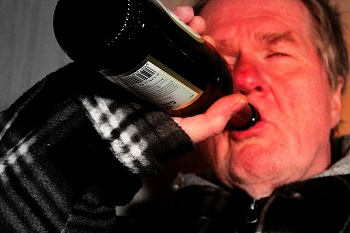What You Need to Know about Alcohol Metabolism
This Presents a Revision to the Book, How to Quit Drinking Without AA:
I did my research for this book in the 1980s and early 1990s. At that time, the best explanation for why alcohol packed so many calories was that, through normal detoxification in the body, it was metabolized into sugar or “blood glucose.”
The first edition of How to Quit Drinking Without AA was published in 1991, and a revised edition in 1994.
Then in 2014, I rechecked the science on alcohol metabolism and found a better explanation of what occurs in the body.
As I noted correctly in the book, alcohol is metabolized into acetaldehyde but then is further reduced to acetic acid, not glucose. Acetic acid is the main component of vinegar. I did not have this part correct in the book.
So how then does alcohol deliver so many calories to the body? The answer seems simple. Alcohol itself has calories.
In addition, alcohol is burned preferentially over all other foods. That’s because the body “sees” it and also the acetaldehyde as toxins. Both are regarded as poisons by your body, and all efforts are made to excrete these compounds. As the body shifts its attention to metabolizing alcohol, it ceases to maintain healthy blood glucose levels.
Studies have shown that alcohol interferes with all three of the body’s sources of glucose as well as the hormones needed to maintain healthy blood glucose levels. Blood glucose comes from (1) the foods we eat, (2) the breakdown of the glucose stored in our muscles (from glycogen),or (3) it can be made from other nutrients in the body. The key hormones involved in maintaining a healthy blood glucose level are insulin and glucagon. When your blood sugar begins to drop, your body responds by making more blood sugar or by burning up stored sugar. And when your blood sugar begins to rise, insulin is secreted to bring your levels back to a healthy range.
The greatest impact in glucose levels is seen in those who drink heavily, and on a frequent basis. By repeatedly raising blood glucose levels, alcohol causes the body’s hormonal system to start over-reacting. Over time, your body over-reacts to alcohol by producing too much insulin (causing hypoglycemia) or producing too little (causing hyperglycemia or diabetes).
So actually, long-term, heavy alcohol consumption can lead to hypoglycemia or hyperglycemia. This fact, as I noted in the book, also remains unchanged.
Of course, one of my main premises for improving physical health when in recovery from alcohol addiction is to quit the sugar-foods. That premise still stands. Quitting sugar foods is the top recommendation for treating hypoglycemia as well as controlling hyperglycemia. Moreover, cutting out sugar foods helps us to maintain optimal physical health and reduce anxiety as well.
If Random House ever plans a third edition of this book, I’ll rewrite the entire section on alcohol metabolism.
Jerry Dorsman
Author
# # #
Jerry Dorsman is the author of two books on addiction recovery: How to Quit Drinking Without AA and How to Quit Drugs for Good, and the coauthor of How to Achieve Peace on Mind.
- For more about the book, How to Quit Drinking Without AA, click HERE.
Other Blog Posts on Breaking Addictions
- Alternatives to 12-Step Programs
- Addiction and the Entrepreneur
- How to Support a Loved One with a Chronic Illness
- Learning to Live with the ‘Alcoholic’ Label
- Jerry Dorsman Recovery Story
- Co-Occurring Disorders: The Risks and Dangers
- Reducing Self-Criticism in Recovery
- Addiction Recovery Poem: From Once Down
- How to Plan for a Safe and Sober Vacation
- Four Key Decisions to Enhance Recovery



Comments
Leave a Reply
You must be logged in to post a comment.